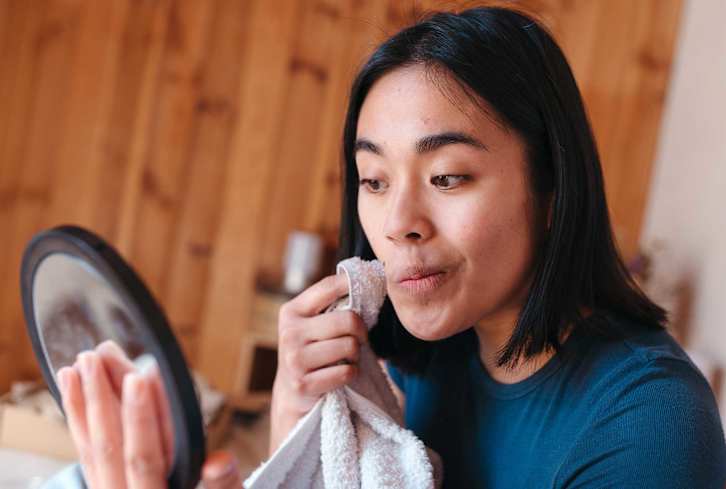Advertisement
Think It's Expensive To Get Healthy? 10 Free Ways To Optimize Wellness


Do you ever feel like it's expensive to live a healthy life? I hear that a lot from my patients. Buying high-quality food, becoming involved in wellness classes and workshops, and investing in socially responsible products can add up — and it can definitely be overwhelming.
Well, the good news is that there are many things that you can do to optimize your health that are absolutely free. Here are 10 of my favorites.
Laugh it up.
Not only is laughter contagious, but it's great for your health! After a good laugh, we can experience post-laughter relaxation for close to one hour, decreasing our stress hormone levels and eliciting a nourishing relaxation response. Laughter can help reduce pain, improve the function of our blood vessels, decrease stress and boost your immune system. Babies intrinsically laugh hundreds of times a day. How often are you getting in a good laugh?
Share your gifts.
More than 30 rigorous and longitudinal studies reviewed the relationship between health and volunteering. They found that volunteering leads to greater longevity, higher functional ability, lower rates of depression, less incidence of heart disease, and improved overall health.
Spend time with others.
Schedule time to meet up with your friends and spend time together. A 2006 study of nearly 3000 nurses with breast cancer found that women without close friends were four times as likely to die from the disease as women with 10 or more friends. Notably, proximity and the amount of contact with a friend wasn’t associated with survival. Just having friends was protective. In another study of 736 middle-aged Swedish men, lack of social support and smoking were the two leading risk factors for heart attack and coronary heart disease.
Get a good night's sleep.
Aim for eight to nine hours a night — getting your zzz's not only ensures that your immune system is in tip-top shape, but it reduces inflammation, helps control your weight and supports optimal memory. Increased sleep quality is associated with very large increases in reported enjoyment in daily activities.
Practice loving-kindness.
New research out of the University of North Carolina at Chapel Hill found that subjects who practiced loving-kindness has increased positive emotions. Increased positive emotions, in turn, produced increases in vagal tone, which is great for our health. The vagus nerve regulates heart rate variability and plays a role in regulating glucose levels and the immune response.
Meditate.
Meditation is a wonderful way to reduce stress. Not only does meditating give you some much-needed “down time” to rest physically, mentally and emotionally, but it also directly impacts your entire nervous system by reducing your body’s production of stress-related chemicals such as cortisol. Meditation decreases oxygen consumption, heart rate, respiratory rate and blood pressure, and increases the intensity of alpha, theta and delta brain waves, which improve the relaxation response.
Go for a walk.
Mild to moderate exercise (aim for approximately 30-45 minutes a day) helps boost the immune system. Exercise also boosts serotonin in the brain, as well as other feel good hormones, or endorphins. We were made to spend a lot of time walking — it's great for our whole body, including our feet! Make it part of your daily routine.
Get outside.
It's springtime — go outdoors! Get some vitamin D and revel in the miracle of the Mother Earth. Vitamin D is a powerhouse in the body; it boosts your immunity and functions in hundreds of processes body-wide. Run around the yard with your pets or kids, read a book on a park bench, or take a stroll around your neighborhood. Spend time in natural light and connect with our beautiful planet. Spending time in nature decreases anxiety, elevates your mood and encourages relaxation.
Hug someone.
Giving and receiving hugs on a regular basis can lower the risk of heart disease, fight stress and fatigue, boost the immune system, fight infections and ease depression, according to a study in the Journal of Comprehensive Psychology. In as little as 10 seconds, hugging can lower blood pressure and stress hormones and boost levels of feel-good hormones such as oxytocin.
If you have a baby, research published in the Journal of Epidemiology and Community Health found that a mother’s affection may have a lifelong impact on her baby. Researchers from Duke University Medical School followed 500 babies from infancy into their 30s. Those whose mamas expressed their love and affection grew up to be adults who had lower levels of anxiety, distress and hostility compared with babies whose mothers showed less physical affection.
Cultivate gratitude.
Gratitude fosters optimism, which has been shown to positively influence the immune system. Optimism and other positive emotions are associated with lowered production of the stress hormone cortisol and with reduced risk of chronic disease, including heart disease and high blood pressure. A study published in the Journal of Personality and Social Psychology found that participants who kept weekly gratitude journals and exercised regularly reported fewer physical symptoms, felt better about their lives as a whole, and were more optimistic about the coming week compared to those who recorded challenges or neutral life events.
Watch Next
Enjoy some of our favorite clips from classes
Enjoy some of our favorite clips from classes
What Is Meditation?
Mindfulness/Spirituality | Light Watkins
Box Breathing
Mindfulness/Spirituality | Gwen Dittmar
What Breathwork Can Address
Mindfulness/Spirituality | Gwen Dittmar
The 8 Limbs of Yoga - What is Asana?
Yoga | Caley Alyssa
Two Standing Postures to Open Up Tight Hips
Yoga | Caley Alyssa
How Plants Can Optimize Athletic Performance
Nutrition | Rich Roll
What to Eat Before a Workout
Nutrition | Rich Roll
How Ayurveda Helps Us Navigate Modern Life
Nutrition | Sahara Rose
Messages About Love & Relationships
Love & Relationships | Esther Perel
Love Languages
Love & Relationships | Esther Perel


















